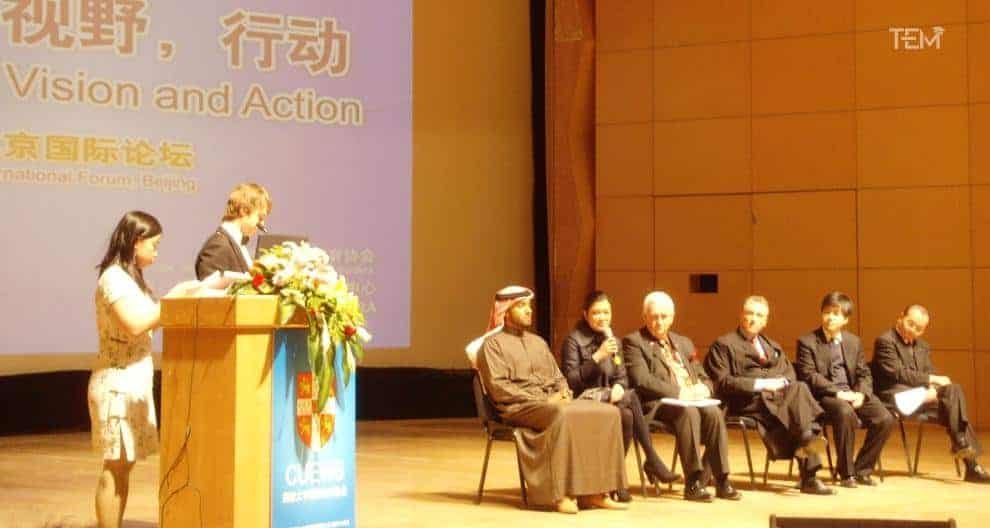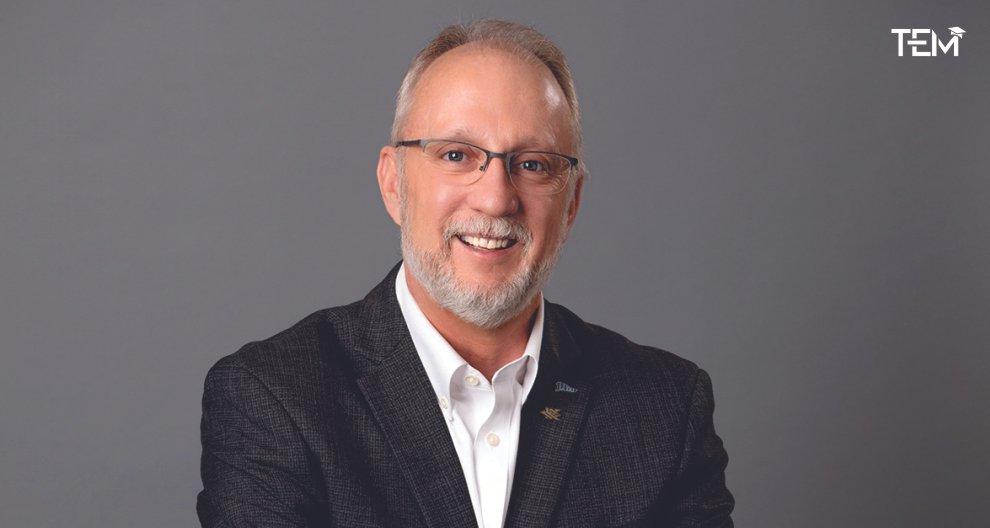The proverb “It’s an ill wind that blows nobody any good” is said when things have gone awry, the idea being that when misfortune arises, there can also be some positive results.
I have recently served as the President of a small, private university which saw the challenges often familiar to similar institutions in the past decade. My tenure concluded with a proposal for our school to be acquired by a public university, an achievement currently in the process of being consummated. If successfully approved, this planned acquisition would secure the future of the school, a prize eminently worthy of acquisition, bringing with it impactful changes for the campus, students, faculty, and staff. To borrow a phrase from the series Chosen, “Get used to different.” Different does not mean worse – in fact, at times, it might even mean better – but it does mean different.
When I was appointed President, of the university, I knew some astute adjustments would be necessary to optimize the functioning and success of my office, constituents, and stakeholders. As an accomplished change agent, I am familiar with the concept of VUCA, where situations carry the hallmarks of volatility, uncertainty, complexity, and ambiguity. When encountering one or more of these factors within an institution, it is difficult for one person to embody all components of the skillset necessary to successfully overcome the challenges involved. The key is to work with individuals who can face change with agility, confidence, and experience, either from within an organization, with trusted, experienced consultants, or colleagues at other institutions through forums. In contemplating solutions to these problems and how to moderate the process when change is necessary, I envisioned an organization of support that has become Academic Leaders Without Borders (ALWOB).
Change is often necessary yet not always welcome. The challenges of the COVID Pandemic have catapulted a new paradigm in higher education, bringing with it many of the hallmarks of VUCA. Yet the pandemic also arrived masquerading as an opportunity for academia. The choice is to cling to tradition and that which is familiar, or evolve along a genuine path towards a more realistic model of higher education. As the humorist and journalist Robert Quillen observed, “Progress always involves risk; you can’t steal second base and keep your foot on first.” With the right leadership, this opportunity can be a home run.
From my experience at the executive levels in higher education, I have observed that leadership is demonstrated through honest assessment of resources, drive, commitment, and action. It also takes collaboration, which is where Academic Leaders Without Borders comes in.
Most colleges and universities share common characteristics, and therefore often encounter similar problems. The solutions however are unique, dependent on the conditions and resources available at the time for a given institution. The common characteristics are familiar to most academic leaders. The solutions however are born from experience and applied knowledge, factors that make collaboration among leaders most effective in confronting academic and administrative problems today.
As with other well-known organizations that are ‘without borders,’ our consortium does not limit support to one region, one type of institution, or one demographic. Instead, by attracting leaders who span the range of academia, we believe we can achieve effective and evidence-based solutions from hands-on experience. Such leaders come almost exclusively from the realm of hybrids, those who have worked within the ivory walls of academia, yet also have held executive positions on Wall Street, Silicon Valley, niche industries, and think tanks focused on policy making in higher education.
Academic Leaders Without Borders differentiates itself through our consultants, who have been in senior leadership engagements at major universities, often after professional careers. These high achievers have combined to create a highly specialized boutique consultancy aimed at revitalizing and catapulting universities of all shapes, sizes, and conditions. In essence it is a tiger team steeped in experience and engaged in practical solutions laser focused on the institution.
Academic Leaders Without Borders is particularly in tune with Gen Z; whether you know it or not, that is the target audience of institutions today. We also have experience with the private/public sector, an area of expansion where institutions have substantial opportunities for growth. Our approach is collaborative; we don’t counsel, we coach towards successful outcomes.
Our firm places heavy emphasis on hand-to-hand combat in the realm of enrollments, working with administrators towards authenticity with respect to engaged learning and how it is applied. We take the analysis and concepts from the classroom and apply them to meaningfully impact real world solutions.
Our current roster of leaders includes specialists in the areas of:
- Enrollment
- Strategic Planning
- Curriculum Development aligned with practical, real world application
- Mergers & Acquisitions
- Student Mentorship and Consultancy Internships
- DEJI – Diversity, Equity, Justice, Inclusion
- Governance
- Sustainability beyond environmental applications
- Transformation of Innovation to Commercialization
Our experience also demonstrates a proclivity for applying cutting edge, thematic approaches to emerging issues that address growing concerns in the areas of mental health, crisis management, emotional intelligence, and wellness via our Academy for Wellbeing. Academic Leaders Without Borders works with faculty and administrators across disciplines. Our domain experts have professional experience with areas within sustainability that focus on regenerative economy, financial stability vs. sustainability, and curriculum redesign that expands to include interdisciplinary studies, and the use of technology in revitalizing liberal arts, putting the ‘human’ back in the Humanities.
The process involves analysis and research involving a vision-to-action skillset that we help develop within organizations, to assist in developing practical approaches when the next version of change comes along, as it inevitably will. In this we encourage and support universities to incorporate capacity and resource allocation, and to increase genuine “buy-in” to increase resiliency. We work with organizations to meet them where they are, to analyze beyond existing data to explore new perspectives on specific strengths, weaknesses, opportunities, and threats.
Outcomes consider options involving strategies that leverage most practical business applications whilst striving to develop and strengthen the institution’s “agility muscles” to gain stability and confidence for future challenges. Keen attention is paid to institutional ambition and efficacy.
For students, our non-profit affiliate organization ICON offers opportunities to work within a global network of student consultants that engage projects solving real world business problems and explore new areas for development. This global consultancy to industry has completed close to 400 engagements spanning five continents.
We believe change is necessary, even in the absence of a crisis. Some may debate this point, but evolution of an organization is vital to maintain relevance and vibrancy, and to remain engaged with all members and stakeholders. This is no less true for higher education, if we are to serve the students who are depending on us to provide them with the tools they will need to succeed in their own futures with knowledge and skills that will last their entire lives.
Academic Leaders Without Borders is ready to work with institutions who know this and are focused on successfully negotiating change on either a small or large scale. I share this, as we are all highly aware that change has come to just about every institution of higher learning in the U.S., if not the world.
To conclude with yet another quote, one by Ben Franklin that I would modify for these times: “In this world nothing can be said to be certain, except death and taxes.” To that I would add “and change.”
Dr. Robert M. Valli:
Dr. Valli has held leadership positions at several universities, including Dean of the College of Management at LIU Post. He has most recently served as President of Sierra Nevada University at Lake Tahoe, Nevada.
Dr. Valli has passed through the gates of three of the top five ranked universities in the World: Berkeley (BA); Stanford Graduate School of Business (SEP); Cambridge University (Ph.D.). His professional background in investment banking; technology ventures in the Silicon Valley, policy development at the Kauffman Foundation, and academic domain focus on emerging innovation ecosystems is unique in both perspective and relevance.
Dr. Valli’s thesis, Building Investment Readiness for University Spinouts through Partnerships & Alliances, underscores his scholarly pursuit of new enterprise development. As the former Director for Advancing Innovation at the $2.8 Billion Ewing Marion Kauffman Foundation, Dr. Valli’s exposure to the Silicon Valley and the ‘Cambridge Phenomenon’ offers evidence-based experience that spans the globe. He has forged long-term, international relationships as a lecturer and adviser to entrepreneurs, companies, universities, and government policymakers. As an academic leader, he has overseen hundreds of worldwide student-consulting engagements spanning Asia, South America, Europe, the Middle-East and South Africa.
Dr. Valli’s ‘35,000 ft.’ vantage point to observe best practices in innovation, entrepreneurship, and higher education has given him incomparable insight in effecting continuous improvement, and effectively leading institutions through recalibration and alignment. His recent venture, Academic Leaders Without Borders, enables organizations to work with seasoned leaders to develop strategies to confront challenges in today’s global environment.
Read the full magazine: The 20 Most Visionary Education Leaders of 2021


